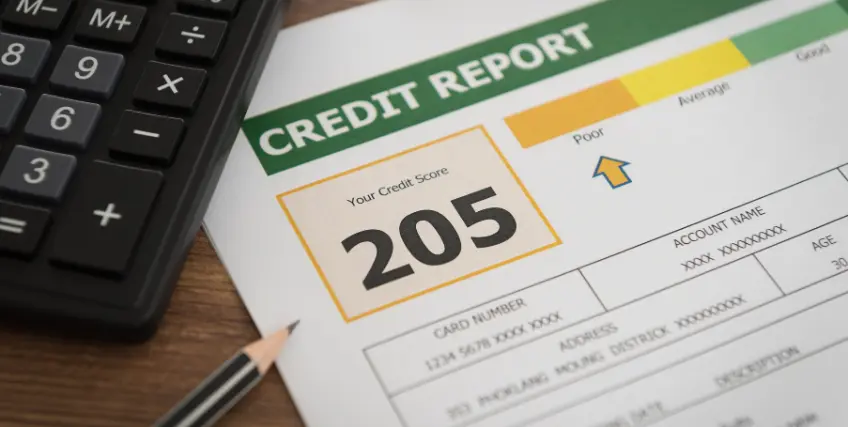Bad Credit? Why MCA Funding Might Be Your Best Funding Option
March 4, 2025 | Last Updated on: March 4, 2025

If your credit score is low, getting traditional financing can be tough. Banks and credit unions tend to prioritize borrowers with strong credit profiles, which leaves many small businesses struggling to find quick funding options when they need immediate cash. MCA funding can be an ideal type of short term financing for business owners seeking cash without the long delay of a small business loan.
Let’s break down the essentials of merchant cash advances (MCAs).
Understanding Merchant Cash Advances
Merchant Cash Advances (MCAs) offer a way for business owners to get funding without the long approval processes associated with conventional loans. With an MCA, a business receives a lump sum in exchange for a percentage of its future sales, like credit card or debit card transactions, or daily bank deposits. This form of short term financing is well-suited for businesses with steady revenue that may not meet credit score requirements. Unlike traditional loans that have fixed monthly repayments, MCA payments are tied to daily sales. This means that when sales are slower, repayments decrease, making them easier to manage during quieter periods.
However, it’s important to note that MCAs generally come with higher costs than traditional loans. Instead of an interest rate, MCA providers charge a "factor rate," which usually falls between 1.1 and 1.5, making the total repayment amount larger. Despite the higher cost, MCAs remain a valuable tool for business owners with low credit scores who prioritize fast access to funds and repayment flexibility.
The Application Process for Merchant Cash Advances
Applying for MCA funding as a financing option is typically simpler than the process for a traditional loan. You start by choosing a provider and filling out an application, which involves sharing basic business details along with bank and credit card processing statements. This documentation helps the funding provider assess your business’s revenue history and sales volume to determine eligibility and the advance amount.
Most MCA providers process applications quickly, often within a few days, as they focus on cash flow rather than credit history. If approved, you’ll get a funding offer detailing the advance amount, factor rate, and repayment terms. Upon accepting, the working capital may be able to be deposited directly into your business account within 24-48 hours.
Why MCA Funding is Accessible for Businesses with Bad Credit
MCA funding is particularly accessible for businesses with lower credit scores because it prioritizes the business's revenue rather than the owner’s credit history. Rather than focusing on credit scores, MCA providers assess projected future sales, allowing them to base approval on cash flow and business performance.
This flexible approach opens financing opportunities for businesses with past credit issues, allowing them to secure funds for operations or growth. Since MCA repayments are based on sales volume, funding providers are confident that repayment will align with the business’s cash flow, reducing the risk and making MCAs a viable option even for those with poor credit.
Considerations Before Applying for MCA Funding with Bad Credit
Before opting for MCA funding, it’s essential to weigh both the benefits and drawbacks. The cost is a major factor, as MCA funding typically comes with higher factor rates than traditional loans, which can significantly increase the overall repayment amount. To ensure this type of funding aligns with your business’s financial health, it’s important to calculate the full repayment cost and confirm it won’t place undue stress on cash flow. Also, although payments vary with sales, their frequency can still impact cash flow, especially if there are unexpected downturns in business.
Final Thoughts
By fully understanding MCA funding, including its costs, small business owners can make the decision that fits best. For many, MCA funding offers a lifeline when other financing methods aren’t available.
FAQs about Merchant Cash Advances
What is MCA funding?
A Merchant Cash Advance (MCA) is a short-term financing arrangement where a business receives a lump sum of cash in return for a share of its future sales. Unlike traditional loans with fixed monthly payments, MCA repayments are flexible, adjusting according to daily sales volume, which is ideal for businesses with steady credit card transactions or bank deposits.
How do I qualify for a merchant cash advance?
To qualify, your business generally needs a reliable flow of credit card sales or bank deposits, as these will be used to repay the advance. MCA providers typically look at recent sales history rather than credit scores to determine eligibility and advance amount.
How does a merchant cash advance work?
A business cash advance provides a lump sum upfront with a repayment schedule established through a set percentage of daily sales or bank deposits. This short term financing repayment structure adapts to the business’s sales performance, allowing more flexibility during slower periods.
Can I get a merchant cash advance with bad credit?
Yes, MCA funding is often available even with bad credit, as providers place more emphasis on the business’s revenue than on credit scores. If your business has consistent sales, especially through credit card transactions, you have a good chance of qualifying.
Frequent searches leading to this page
fast business funding, quick small business loans, mca business loans
Recent Articles
Related Articles

Can You Renegotiate Terms on MCA Cash Financing After a Default? What Business Owners Need to Know
November 27, 2024

Business Loan or Merchant Loan? Understanding Loan Options for Your Business
November 25, 2024

Avoiding the Debt Trap: How Stacking MCA Business Financing Can Hurt Your Business Credit
November 7, 2024

Why MCA Business Funding May Be Ideal for Retailers Looking to Expand Inventory
November 5, 2024

Merchant Cash Advance vs. Asset-Based Lending: Which is Right for Your Business?
January 10, 2025

Merchant Cash Advance vs. Traditional Business Loans: Which is Right for Your Business?
January 10, 2025

Merchant Cash Advance vs. Line of Credit: Which is Right for Your Business?
January 9, 2025

5 Things Every Small Business Owner Wishes They Had Known When They Started
January 9, 2025

































